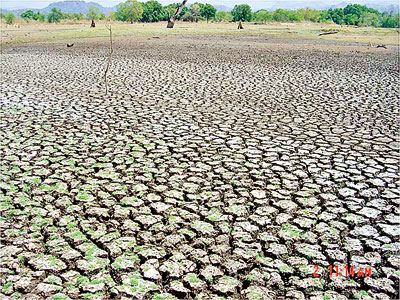De-localising local elections in Sri Lanka
For the first time in the recent Sri Lankan political history, significant attention was paid to the local government election held in February 2018. In fact, it was accorded similar consideration as that given to a national election; and the outcome of the election created political uncertainty in the country.
The Centre for Poverty Analysis (CEPA) recently conducted a content analysis of the newspaper reporting on the local elections within the first two weeks of January 2017. The findings of the analysis revealed that hardly any space was given to discuss the key issues in the rural and urban sectors which could be solved through the proper interventions of local government bodies. There was little or no discussion about the much needed role of the local government bodies in facilitating the rural development process of the country. Instead, the newspaper content was dominated by discussions on issues in the national political landscape such as the Central Bank bond scam and allegations of corruption by the previous government. There was also very little information available about the new electoral system and its potential impact on local governance.
Outsiders
The new electoral system was introduced at the local government elections promising key change. Citizens were now afforded an opportunity to select candidates who are responsible for their respective electorates. This however, doesn’t appear to have been the case, with reports indicating residents of other locations, at times outside of the district as well, being elected to govern. The case of the Maharagama Urban Council where people voted for candidates from Gampaha is a strong case in point. The other key promise of 25 per cent representation for women has also hit roadblocks, with the news cycle indicating that this landmark feature will not be implemented.
The discussions on issues in national politics and mega development projects take place in a socio-economic context where income inequality is high and stagnant in society with serious implications to the rural sectors of the country. The Household Income and Expenditure Survey (HIES) of 2016 indicates a growing gap between the rich and the poor with the average household income of the richest quintile amounting to Rs. 158,072. In comparison, the poorest quintile earned Rs. 14,863.

File picture of a parched tank. Lack of water was a key issue, largely ignored by most political parties, at the poll.
Despite these features, CEPA’s observations on media reporting of the local elections highlighted that none of the leading political parties paid any serious attention to poverty, inequality and related socio-economic issues in the country. There is a critical need to look at poverty by focusing on regional disparities as such issues require responses that are context-specific. For example, when the Department of Census and Statistics-assessed poverty at divisional level in 2012/3, Manmunai-west and Koralai Pattu South in the Batticoloa district and Siyambalanduwa in Monaragala district were identified as poverty pockets with an incidence of 45.1 per cent, 37.7 per cent and 28.7 per cent respectively while the national poverty headcount index remained at 6.7 per cent. Issues such as rising debt, the instability of informal work, the increased insecurity in major farming areas due to environmental threats and opportunities for women which CEPA has identified as concerns for people living in poverty, can be adequately addressed at the local level. But none of these issues received due attention at the elections.
No Progress
Additionally, although the government declared 2017 as the Year of Poverty Alleviation, both major parties in the national government did not focus on the progress they have made in this regard, or their future plans to alleviate poverty in Sri Lanka.
Unlike in previous local elections, a majority voted for their interests in the national politics. This may have been aided by the fact that a shift in political power or strengthening of the existing elected officials at the national level was dangled as a carrot and formed the basis for election campaigns. The entire election campaign was centered on the rhetoric of nationalism and mega development. The political spin used in the campaigns summarily distracted the voters and the media from focusing on the major concerns that local government bodies must take up, including such major concerns as waste management and local infrastructure.
The changes that have taken place in the rural sector in the last couple of decades have also not been properly captured in the election discourse. There have been significant changes in the rural sector due to internal and external migration with serious socio-economic implications. On the other hand, the local elections were regarded as that concerned simply with villages and the rural sector. A leading leftist party conducted their campaign in the urban areas with the slogan “vote us to develop the village” which showed a lack of sensitivity about the basic differences between urban and rural sector. By focusing on the national political arena rather than re-evaluating the conditions on the ground, it was quite evident that most of the leading political parties saw this election only as a milestone in their way to win the next presidential and general election.
Challenging issues
Local governance is of fundamental importance to a country like Sri Lanka in order to reach out and offer services to its urban and rural populations. In the current political context, however, facilitating a public discourse on issues related to local governance that is not tainted by party politics, remains challenging. It remains imperative therefore, for civil society organisations, academics and the media in particular, to take on the responsibility of supporting this “alternative” viewpoint create or contribute to a critical public discourse.


